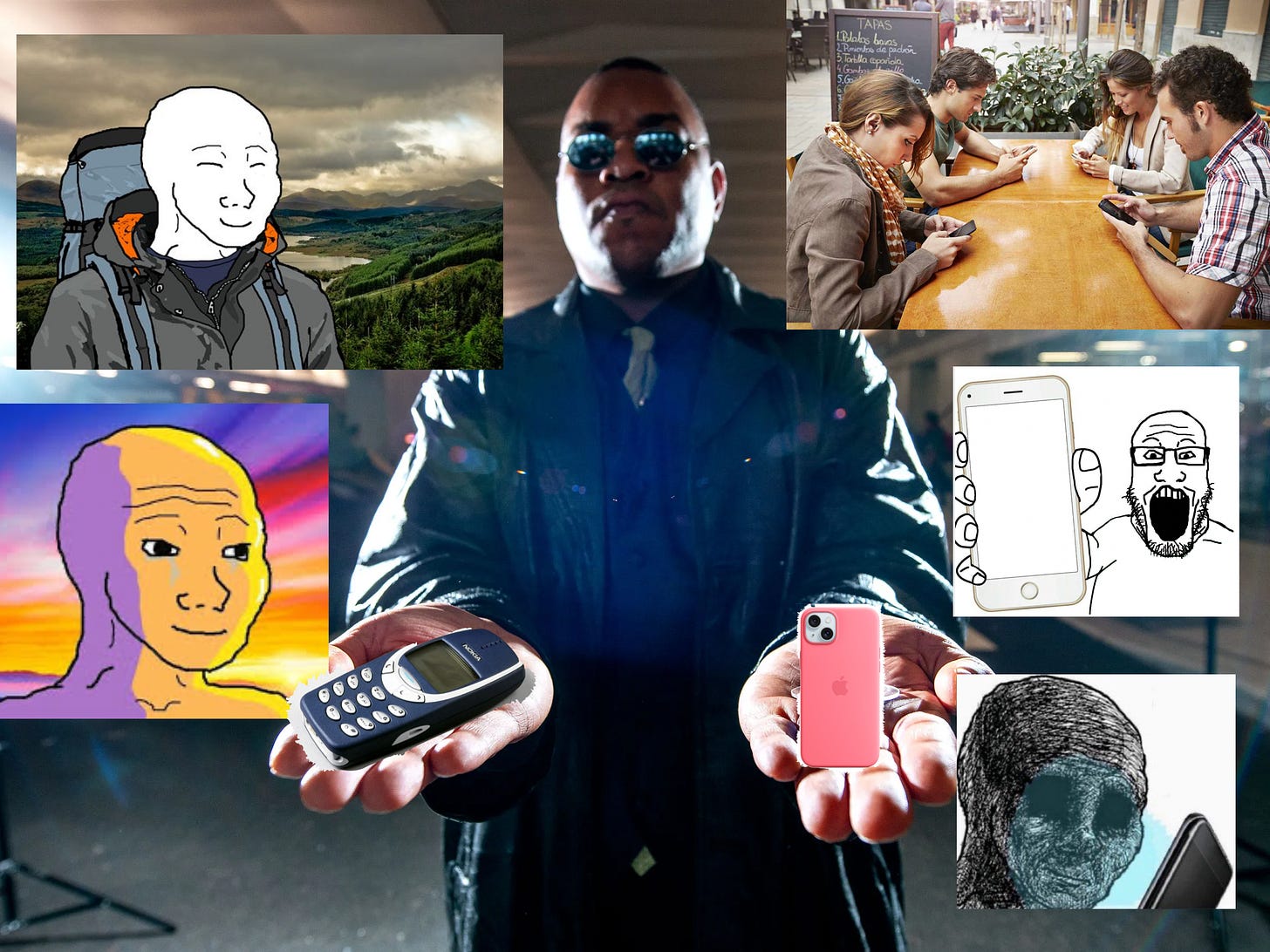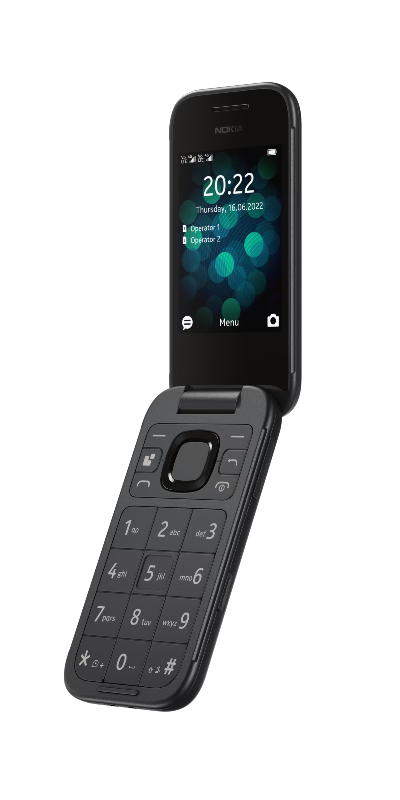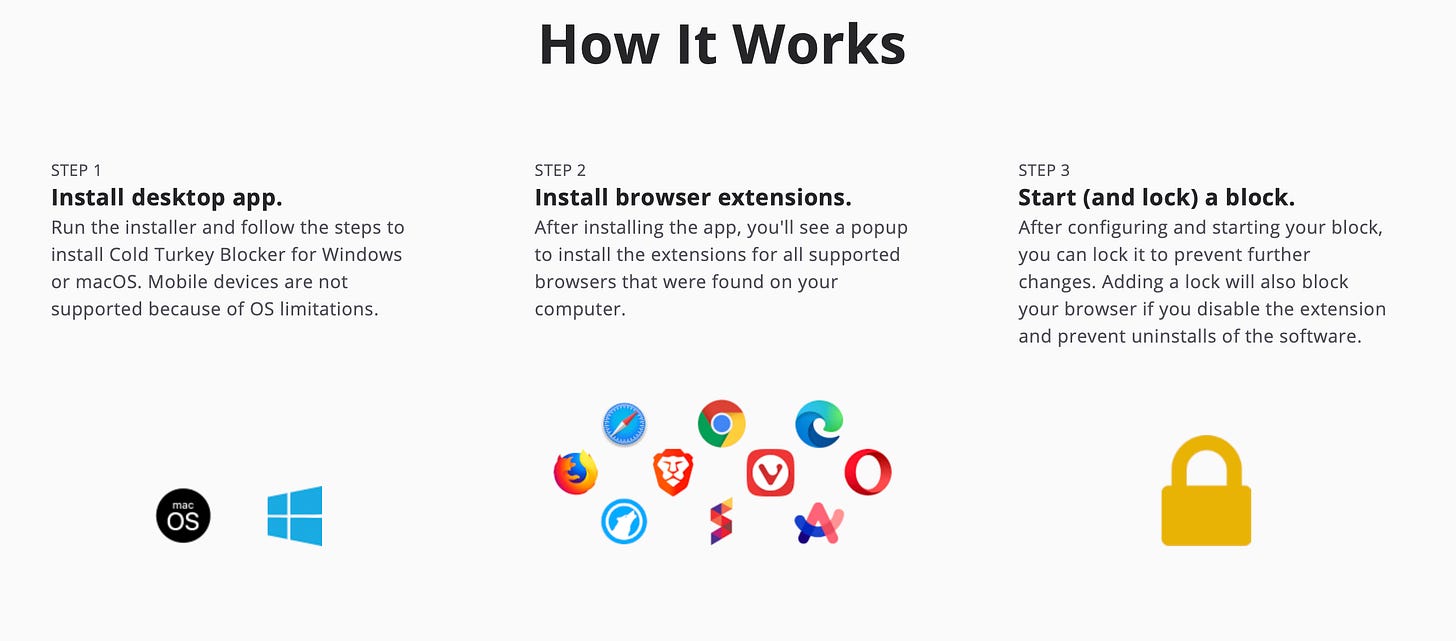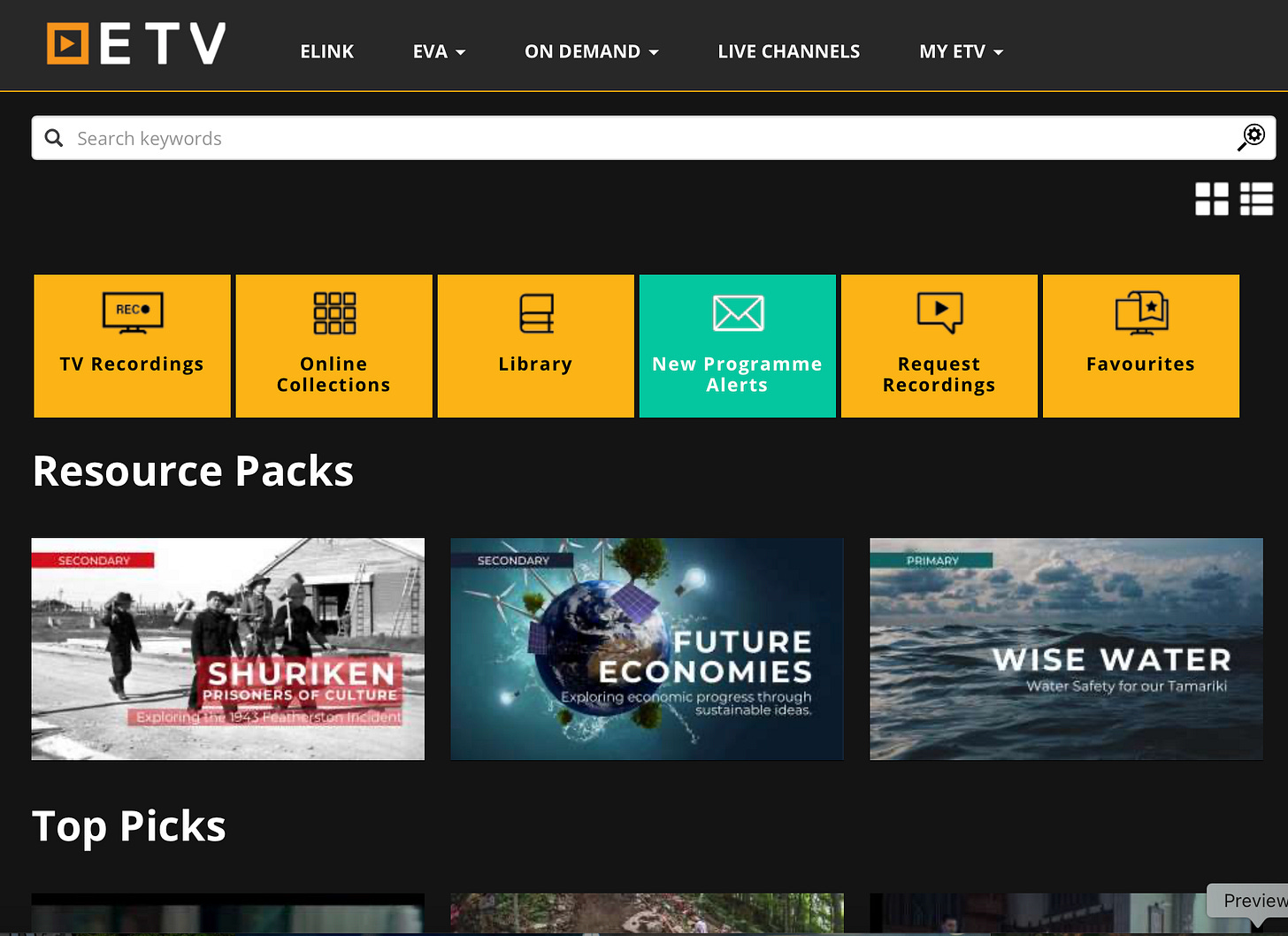Simple Steps to Avoid the Attention Economy
Modern problems require modern solutions
I’ve been addicted to the internet ever since I was a kid. As an adult, I still have a life that is dominated by technology, due to my chosen profession of software engineering. However, for the last 5 years, I’ve made a concerted effort to change my relationship with technology, using my knowledge of it as an asset. I wanted to gain control, so I was using technology intentionally, not compulsively. Along the way, I tried many different things. Here’s what actually works.
Brick Phone
I believe the most important step to escaping the attention economy is to replace your smartphone with a brick phone most of the time. You don’t have to always use a brick: I’ve kept my smartphone for when I need it, like when I go traveling.
During 2019-2023, I was at grad school, and I didn’t have a smart phone. Since I started working, I’ve felt like I “need” a iPhone so I can do stuff like answer work messages. But in reality, you get by with a desktop computer and a brick phone most of the time.
I did all sorts of things to ameliorate my iPhone’s addictiveness when I bought it. I set it to black and white, which apparently makes it less stimulating, but mostly just made it annoying to use. I blocked the App Store and Safari. I had already deleted all of my social media accounts. The problem is that you can undo these settings. I seesawed between not using my phone and unlocking the restrictions and scrolling for hours.
So I’ve gone back to my brick phone most of the time. I got the Nokia 2660 flip. It cost me 120$(NZD) from the Spark store.
What I initially noticed is that my motivation to do boring things went down. I felt more of a mental barrier to doing simple chores, because I used to entertain myself by listening to a podcast on my phone while doing so. So, to prevent my lovely fiancee from killing me for not doing the dishes, I listened through bluetooth headphones connected to my computer.
When I was out of the house, I only had my brick phone on me. I have a longish commute to work (~1hr there and back) because I like to walk. I think having this much time with no external input, not thinking about anything in particular has been good for me.
I’ve noticed subtle changes in how I feel. My ability to concentrate has gone up. I see new things about the places I’d been walking by every day for years. And despite recent events like the election, I’ve been feeling more hopeful about the world. These are the sorts of things that happen when you take more time away from the screen.
Block social media websites from my desktop
There’s no point getting rid of your phone if you just scroll your desktop instead. As a programmer, I have to use a desktop during the workweek, and have one at home for remote work. I’ve figured out two different ways to effectively block time wasting websites on desktop.
On my work machine, I installed a program called cold turkey. (This requires admin permission to do).
I found site blockers that you could just uninstall useless - if I’m having a lapse of willpower and my brain wants the quick hit of dopamine from scrolling reddit, I’m just going to shut off any blocking browser extension. Cold Turkey is the only app I’ve found that allows you to block websites in an irreversible way. I know this sounds extreme, but as far as I can tell, the app is safe, reputable, and private.
CT allows you to manually write out a list of sites to block. I have a list that blocks sites such as news, entertainment, sports, and of course social media. Then, you can “lock” this list, irreversibly.
Configuring your router to block websites
If you don’t want to install Cold Turkey, you can configure your router to block websites. This is what I’ve done on my home network. Most modern routers can easily block websites in a customizable manner. For example, I’ve blocked websites for my devices and not my partners’ (because she likes listening to YouTube while she cleans)
Here’s a quick how to:
Open the router’s management panel in the web browser - this exists at a local website specific to the router model
Open “Parental Controls”
Create a profile for yourself
Identify the MAC/ Hardware address of your devices. If you have a MacBook, it has a privacy setting that changes your MAC address occasionally, which will reset the blocking. You can disable this when you connect to your wifi.
Add the device MACs to your profile
Add whatever websites you want to your profile’s block list
Profit!
There are forums online where you can see how to configure your specific model. If you have an old router, it’s probably worth upgrading to a new one anyway so you can install firmware updates.
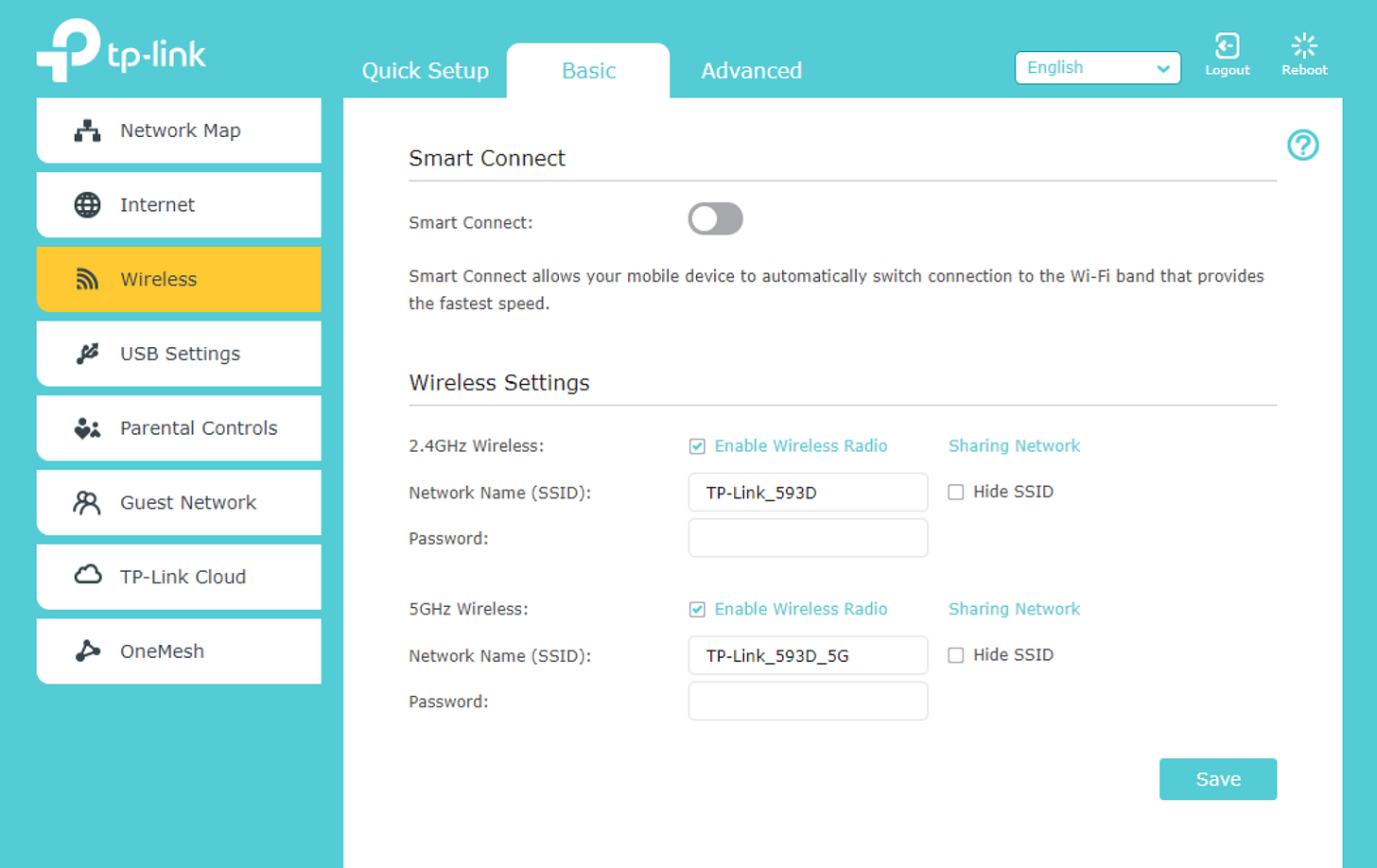
Delete Social Media Websites
There’s overwhelming evidence that social media is bad. But if you’re reading this, you already know that. People know they dislike social media, but feel they need to keep it to stay in touch with their friends and family.
This is untrue. I’ve not had social media (like Facebook) for almost 4 years now. You can stay in touch with people through chat based services such as telegram, discord, or WhatsApp. If you want to keep your contacts, you can even delete Facebook and only use Messenger. If you have people overseas you want to video chat, you can do FaceTime or Skype on your desktop.
Deleting social media is also a good filter to see who really wants to remain in touch with you. The important people in your life will make the effort to stay in touch when you delete Facebook. The only thing you’ll end up missing is hours of pointless scrolling and photos of people you didn’t like in high school going on vacation.
Cancel Streaming Subscriptions
Cancelling streaming is a more extreme step to avoiding the attention economy. I go back and forth with this - if there’s a show/movie my partner and I want to watch, I will subscribe for just a month, and then cancel straight away so they don’t keep billing me.
Another negative aspect of streaming services is the cost. Now that streaming has fragmented into many different websites, it’s very easy to rack up a large bill.
If you are living in New Zealand and you have a student login (they last for a while after you graduate), you can largely replace streaming websites with ETV.
ETV is run by the government. It is nominally a “e-learning platform”, with many random videos uploaded. But it is also an archive of New Zealand tv broadcasts. So you can easily find recordings of different movies that have been shown on tv. And it has easily navigable boxed sets. On ETV I have seen the entirety of Lord of the Rings, The Wire, Silicon Valley, Harry Potter, etc. A tip: if you look for newer recordings they are better quality. Some of the recordings from the early 2010’s are pretty grainy.
Get a library card
I recommend reading as an alternative to screen time because it is good in every way scrolling is bad. Along with exercise, reading is the anti scrolling.
A library card is great. Going to the library can turn into an event - you show up, browse, and you end up finding new books you wouldn’t have seen otherwise. It’s also free. This is important, because books are expensive nowadays. (40$ for a paperback!)
When you’re first getting back into reading, don’t try to read classics like Anna Karenina or Infinite Jest. Your brain won’t have the attention span yet. Just read something you find engaging and fun. For me, this was detective novels - I love Lee Child and Michael Connelly. Then over time, you can branch out to more difficult stuff. This will happen naturally.
Talk to people in real life
Online you experience many “faux” digital social interactions, such as posting memes in group chats or having parasocial experiences watching YouTubers. This is like social junk food - it gives the illusion of satisfying a legitimate need.
When you take this away, you will initially feel a bit lonely. I’ve tried to use this as motivation to schedule more in person hangouts with my real life friends.
Encourage accountability by getting people you live with on board
If you live with other people, and are trying to make some of these changes, I would encourage you to get them on board. It’s like quitting smoking - if you live with people who still smoke, it’s really hard. For example, I live with my partner. Although she doesn’t take the extreme steps I am taking, she agrees they are the right thing to do for me. And she has made some changes herself. In general, if she catches me scrolling, or I catch her, we’ll try to encourage each other to get off the screen. We also have “screen free” times where we turn off the internet. This often ends up with us going out and doing an activity out of boredom.
Fall down 99 times, get up 100
Making these changes is difficult, and will require a lot of time and effort. You may have setbacks, and revert to your old habits. For society to change, first we have to change ourselves. The more people opt out of social, the more normalized it will become.
I’m hopeful eventually we will look back on social media and smartphones just like we look back on smoking, lead paint, asbestos, and other harmful inventions. People of the future will think to themselves “Damm, that shit was crazy. We were letting kids use that? I’m glad we got rid of it.”
Coda: Recommended Reading:
Here are some books my partner and I have read on the topic, that we recommend. Star rating is out of 5.
The Social Dilemma
⭐⭐⭐⭐⭐
The Social Dilemma is actually a Netflix documentary. If you can’t be bothered reading anything, just watch it. It’s a good summary of the basic arguments in techno-criticism.
Digital Minimalism: Choosing A Focused Life in a Noisy World, Cal Newport ⭐⭐⭐⭐⭐
Deep Work: Rules For Focused Success in a Distracted World, Cal Newport
⭐⭐⭐⭐⭐
Cal Newport is a Computer Science professor that also writes a lot on how technology is changing society. Anything he writes is gold. These are my two favorites of his. He also has a blog and a podcast which are good.
Ten Arguments for Deleting Your Social Media Accounts Right Now, Jaron Lanier
⭐⭐⭐⭐
This is a great book on why you should delete your social media, by the techno philosopher and virtual reality pioneer Jaron Lanier.
The Shallows: What The Internet is Doing To Our Brains, Nicholas Carr
⭐⭐⭐⭐⭐
This book gets into the neuroscience of how our brains change with internet use. The author, an extremely online journalist, decamps to a cabin with no internet to write the book, and documents the effects.
Reclaiming Conversation, Sherry Turkle
⭐⭐⭐⭐
MIT sociologist Sherry Turkle explores how technology has negatively affected our ability to have interpersonal connections. It’s somewhat anecdotal, but convincing.
The Anxious Generation, Jonathan Haidt
⭐⭐⭐⭐⭐
Jonathan Haidt is a psychologist that has been researching the effects of social media on children. This book is a well written summary of the current state of the literature, which points to social media being very harmful. He makes the case that we should ban it for minors, and explores practical solutions. It’s basically an executive summary for policy makers.
The Chaos Machine: The Inside Story of How Social Media Rewired Our Minds and Our World, Max Fisher
⭐⭐⭐
Max Fisher is a reporter for the New York Times. He covers all the standard topics about how social media is effecting our mental health in a perfunctory manner. However, he also does a deep dive on how it has been destabilizing politically, driving polarization and conspiracy theories. I had to dock some stars due to the book’s strong political bias, that at times beggars belief. Be ready to hear a million ways that social media has made conservative people more insane, but you hear any mention of how it has also deranged the left.
Stolen Focus: Why You Can't Pay Attention, Johann Hari
⭐⭐⭐
Another book by an extremely online journalist who documents his experience quitting the internet so he can focus again. He gets into the different things that our contributing to our inability to focus, with an emphasis on social media. He also veers off on some weird tangents, like when he rants about how ADHD isn’t real, and how pollution from cars is making you stupid. You can skip the chapters like this. I recommend this book solely because there’s a great section in the middle where he talks to Tristan Harris (an Google whistleblower) who explains in detail how social media sites are designed to be addictive. But to be honest, you can rewatch the Social Dilemma to get this information.


